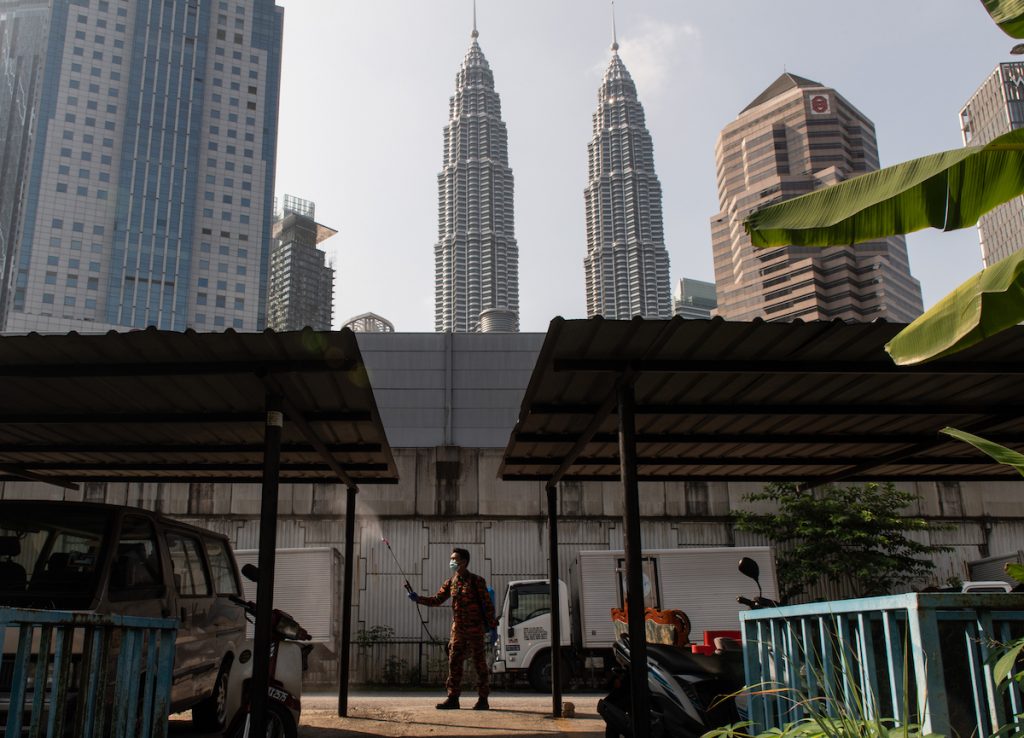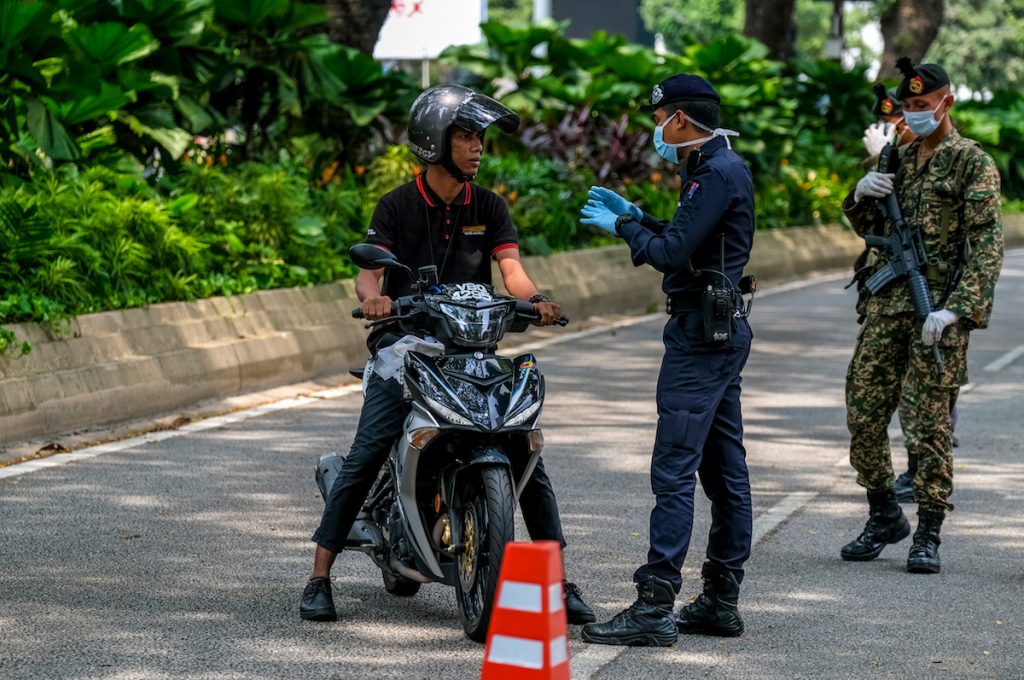Taking over the reins of power during a global pandemic is not high on any statesman’s wish list but it is the lot Malaysian Prime Minister Muhyiddin Yassin has drawn.
The casual observer could, therefore, allow a new leader a bit of leeway in getting to grips with the situation as he finds his feet but, in Muhyiddin’s case he is no stranger to the upper echelons of government, having served in the Cabinet under various prime ministers for the lion’s share of the past 40 years.
So in that respect, the 72-year-old from Muar in the southern state of Johor, is one of Malaysia’s elder statesmen, known for his intellect and oratory skills, and is no stranger to a crisis.
In fact, he was in the Cabinet during the collapse of tiger economies in 1998.
Yet, since coming to power barely a month ago, his administration has been beset with a series of blunders that will in time rip open the pockets of many ordinary people.
Despite a valiant effort, it became apparent early in March the Ministry of Health was no longer able to cope with the number of people contracting the novel coronavirus, so stricter measures of population control were needed.
Muhyiddin took the gamble of restricting the movements of the population for two weeks, which would impact the economy but hopefully relieve the pressure on the health service.
However, his administration and the police bungled the implementation, as hundreds of thousands of people clogged the country’s arterial roads hoping to beat the deadline and ‘balik kampung’ (return to my hometown) for a fortnight’s “vacation”.
Yet, the financial implications of the order were only beginning to unfold. With all but essential services operating, employers and employees alike demanded to be compensated.
Employers cannot afford to pay staff who are not working, while staff cannot afford to go without pay, particularly when their absence is enforced.
Shortly after the lockdown came into force, Muhyiddin announced that people could make monthly withdrawals from the Employees Provident Fund (EPF) to help “ease their burden”.
Cue uproar.
EPF is a national sovereign wealth fund designed to give citizens a financial safety net of sorts when they retire, requiring a monthly deduction from the employee’s pay cheque to be roughly matched by the employer.
The government guarantees the fund and it is supposed to be virtually untouchable until the employee retires so, for many people, to be asked to make withdrawals jeopardising their long-term future is bordering on heresy.
Before the prime minister’s announcement, the majority of Malaysia’s middle- and low-income groups were already feeling the pinch, following an almost economically ruinous end to the Barisan Nasional administration in 2018.

Knowing they would have to cover the cost of sitting at home for an indefinite period of time with their long-term savings was not at all palatable for a population growing increasingly uneasy over their worsening fortunes, not least the “backdoor government” they had acquired five weeks previously.
Economic experts across the board agreed, asking why the government had not at the very least decided to pump money into the Bantuan Sara Hidup (BSH) fund, designed to provide periodic cash handouts to lower income groups.
Analysts added the flexibility of BSH meant that payments could be made immediately, while the government itself had admitted it would take weeks for withdrawal applications from EPF to be processed.
Crucially, Muhyiddin’s move also ignored the 6 million or so people living in Malaysia’s cash economy, including more than 2 million foreign workers.
These are the people, many of whom live below the poverty line, who do not contribute to EPF and will be the first to go when companies begin to downsize.
The very people successive governments have repeatedly said they were targeting have once again been side lined and are already becoming desperate, with news reports already coming in of low-income or unemployed people jailed for defying the lockdown to steal food.
When Muhyiddin did finally roll out his long-term economic stimulus package for the nation, he relented and provided funds for BSH, along with some relief for bills and utilities payments.

Cynics attacked the plan for hijacking the ideas of political opponents, who had been vociferous in calling for more funding for the needy and who had naively publicised their plan of action had they still been in power.
Either way, people receive some immediate aid, but it is just short-term. Most of the handouts are one-off or end after three months.
Again, economists are predicting the fallout from the coronavirus will take many months to dissipate but the majority of these handouts will have long since dried up by then.
In comparison, by the time Muhyiddin made his address to the nation, Singapore had already earmarked medium- to long-term aid for its low-income demographic, putting the efforts of its northern neighbour somewhat in the shade.
Meanwhile, Muhyiddin’s bloated Cabinet of roughly 70 ministers — in a Parliament of just 222 MPs — had to weather a prolonged social media tongue-lashing before agreeing to take pay cuts and give up cushy perks for the duration of the crisis.
However, what is more worrying is the rhetoric and cliched phrases trundling off the ministerial press release assembly line.
It would appear that Malaysia has reverted to a state where the government is easing the burden of the people — which never seems to ease — and providing taxpayers with generous benefits — from the taxpayers’ own coffers — as if the government is doing the people a favour while not actually doing very much.
The economy teeters on the edge of a precipice with the coronavirus mauling two of its major industries: oil and tourism.
National O&G giant Petronas already had its staff on a four-day week, while the government’s tourism campaign lay in ruins with US$25 billion in projected revenues having evaporated into thin air, further impacting Malaysia Airlines.
The flag carrier’s outlook has been at best bleak for nearly a decade with a succession of government rescue plans collapsing and rivals walking out of merger talks.
Now its staff have to take unpaid leave.
Yet, the Cabinet resorts to the rhetoric of the authoritative former Barisan Nasional administration, which was very much a government believing it was the benevolent parent to the people, who were its children that ought to be grateful for everything it provided.
Even when the overwhelming evidence screamed otherwise.
In the short-term, which political entity governs this locked down country is neither here nor there but as the authorities relinquish travel restrictions, people are going to want to more than the occasional handout and a condescending pat on the head.
People need reassurance their long-term futures are secure but so far, the government has yet to hint at what that future may be.
Gareth Corsi is a freelance journalist based in Malaysia. The views and opinions expressed in this article are those of the author and do not necessarily reflect the official editorial position of LiCAS.news.





